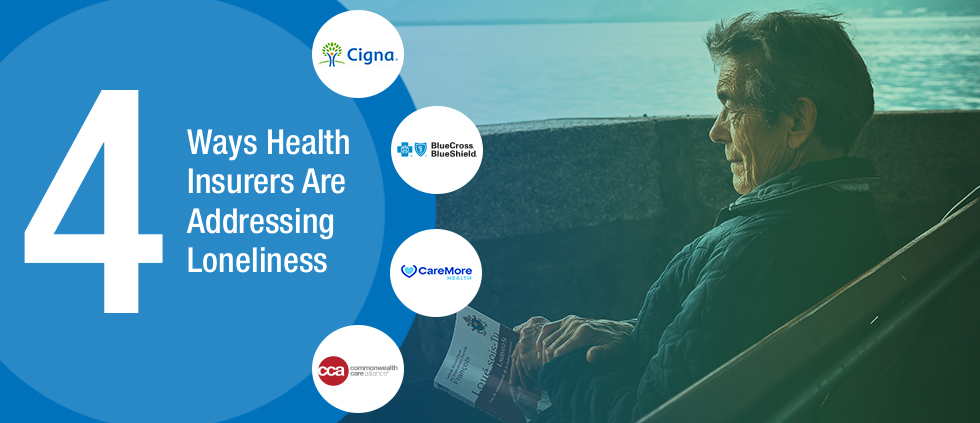4 Ways Health Insurers Are Addressing Loneliness, a Social Determinant of Health

At the beginning of last year, an article published on the website Open Minds asked: “Is Loneliness The Overlooked Social Determinant?” Fast forward to 2019 and the social determinants of health (SDoH) and finding ways to take these on have become the focus of many health insurers across the country. Loneliness is a problem that affects one in every five Americans, says Dr. Vivek Murthy, a former U.S. surgeon general, who spoke about the loneliness epidemic at the recent America’s Health Insurance Plans (AHIP) Institute & Expo 2019. And, according to Cigna’s 2018 U.S. Loneliness Index which surveyed 20,000 Americans ages 18+, Generation Z (adults ages 18-22) and Millennials (adults ages 23-37) are lonelier and claim to be in worse health than older generations. This points to a general consensus that loneliness affects a large, comprehensive part of our population.
Overall, loneliness can have a serious impact on someone’s physical and mental health. In addition, a report from the American Journal of Public Health found that efforts to reduce loneliness in seniors can cut healthcare costs, decrease physician visits, improve health outcomes and better target health interventions. As such, we’d like to share a few examples of efforts insurers have undertaken.
Cigna Addresses Loneliness at the Individual and Employer Level
Cigna’s Loneliness Survey prompted the insurer to launch a short, 10-question survey free to the general public based on the UCLA Loneliness Index on their website. Along with each response, Cigna provides tips and actions for participants to help encourage social interaction and improve “feelings of vitality.” Cigna is also working with employers to address loneliness at the workplace level. Their goal is to help “create a culture of connectivity” where leadership encourages relationship building and interaction along with a healthier work-life balance.
CareMore Health Views Loneliness as a Clinical Issue
CareMore Health, an Anthem, Inc. subsidiary and care delivery system serving Medicare and Medicaid patients, introduced their Togetherness Program in 2017 to “identify and intervene in the loneliness among its senior patients.” They screen patients at their first appointment for loneliness and social isolation along with other risks such as food insecurity. They have weekly calls from trained volunteer staff with all members who screen positive for social isolation to have conversations for about 10-20 minutes where they can uncover member issues such as the inability to get food or medicine. Since the launch of the program, CareMore Health has reported a 21 percent decrease in hospital admissions.
Blue Cross Blue Shield of Michigan Helps Members Combat Feelings of Loneliness and Social Isolation
Earlier this year, Blue Cross Blue Shield of Michigan launched their Virtual Well-Being program focusing on a number of topics including social connectedness. They offer weekly webinars which “provide research-based information to educate members on ways to improve their well-being.” Webinars are offered for employers and for members. They also provide employers with onsite coordinators to increase workplace wellbeing.
Commonwealth Care Alliance (CCA) Serves Dual Eligible Individuals With a Team-Based Approach
Their One Care demonstration program serves dual eligible individuals. When members enroll, CCA learns about their needs – medical, social and behavioral – and assigns a care partner who becomes their point of contact for all services. That care partner will reach out to other specialists if necessary, and the type of care partner can be a nurse practitioner, behavioral health worker, licensed clinical social worker, or licensed mental health clinician, depending on the sickness of the member. Members are assigned a team of healthcare practitioners who can work together to meet their needs.
Conversations surrounding the social determinants of health (SDoH), along with actions taken by health insurers to address them, will continue to happen as the move toward a more value-based healthcare model continues. Other trends that we are looking at are the launch of social care networks by CVS Health and Aetna along with Kaiser Permanente’s Thrive Local initiative. These networks will help connect members to community services that can address their social needs.









